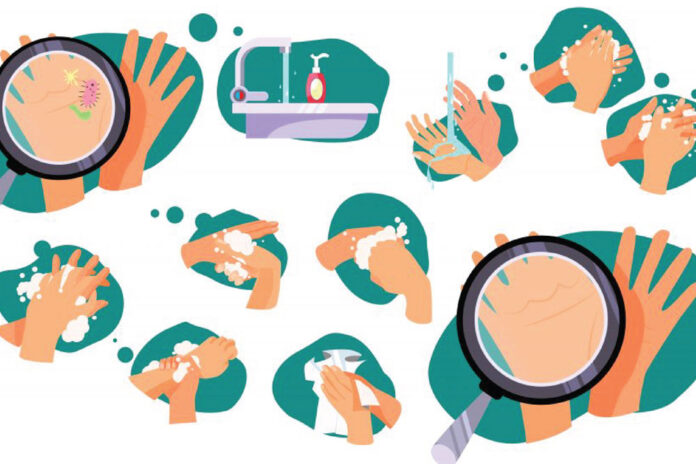In an ever-changing health landscape, the elderly remain one of the most vulnerable demographics. Parasite attacks, often overshadowed by more prominent health issues, are a growing concern. These minute yet menacing organisms can severely affect the elderly, often with more devastating consequences than in their younger counterparts. Throughout this article, we’ll dissect the nature of parasite attacks, why our elderly are more susceptible, and the various strategies we can employ to shield them from such threats.
Understanding Parasite Attacks
Parasites, by definition, are organisms that reside in or on a host, deriving sustenance at the host’s expense. Some well-known culprits include tapeworms, pinworms, and the waterborne Giardia. However, it’s essential to understand that the elderly aren’t just facing a biological battle against these invaders. With age, their physiological defense mechanisms can deteriorate.
The resulting compromised immunity, combined with the unique challenges posed by aging, such as reduced metabolic rate and changes in gut flora, makes them a prime target for these harmful organisms. The ramifications of such attacks can range from uncomfortable symptoms to prolonged illnesses and severe health complications.

Risk Factors for Elderly Individuals
Aging, while a natural process, brings along its share of challenges. These challenges often magnify the risks associated with parasite attacks. The elderly tend to have a diminished immune response, making it harder to combat infections. Chronic conditions like diabetes or heart disease further reduce their resilience.
Additionally, limited mobility can confine them to spaces, increasing the risk of exposure to parasites, especially if these environments are not impeccably clean. Lastly, cognitive decline might lead to lapses in personal hygiene, offering parasites an easy pathway to invade. Recognizing and acting upon these risks is pivotal in ensuring the health and safety of our elderly loved ones.
Common Types of Parasite Infections
As we look deeper into the infections plaguing the elderly, certain parasites emerge as particularly troublesome:
Tapeworms: These are elongated, ribbon-like worms often ingested through undercooked meat, especially pork or fish. In the elderly, an infection can lead to abdominal discomfort, weight loss, and nutrient deficiencies. What’s more alarming is that they can remain undetected for years, gradually sapping away at the host’s vitality.
Pinworms: Particularly notorious for their uncomfortable symptoms, these tiny worms usually invade the intestinal tract and can cause severe itching, especially at night. For an elderly person, this could lead to sleep disturbances, increased stress, and even secondary bacterial infections from persistent scratching.
Giardia: Contracted from contaminated water, this parasite can wreak havoc on the digestive system. Symptoms include diarrhea, gas, and stomach cramps. The dehydration resulting from such an infection can be especially perilous for the elderly, given their reduced capacity to regulate bodily fluids.

Prevention Measures
Ensuring the health and safety of our elderly loved ones begins with proactive prevention. One can’t underscore enough the significance of this step, especially since prevention can mean the difference between a healthy life and one fraught with complications.
Personal Hygiene: Regular bathing, changing into clean clothes, and proper grooming are paramount. Nails should be kept short and clean to prevent parasites from residing underneath.
Food Safety: Cooking food thoroughly, especially meats, and ensuring they are stored at the right temperature is crucial. Consuming pasteurized dairy over raw variants can also minimize the risk of ingesting parasites.
Environmental Precautions: This includes ensuring the living environment is clean, well-ventilated, and free from stagnant water that can be a breeding ground for pests.
Also, you should always have on hand some of the products from PriceProPharmacy.com that can aid in repelling or keeping parasite attacks in bay.
Proper Handwashing Techniques
It might seem rudimentary, but proper handwashing can be the strongest defense against many pathogens, including parasites. The elderly, and those caring for them, should:
Wet hands thoroughly with clean running water.
Apply enough soap to cover both hands.
Scrub all surfaces – palms, back of hands, between fingers, under nails – for at least 20 seconds.
Rinse well, then dry using a clean towel.
Avoid touching the faucet directly when turning off the water. Use a tissue or elbow if possible.

Food Safety Practices
Parasites often find their way into our bodies through the food we consume. It’s imperative to:
- Wash fruits and vegetables meticulously before consumption.
- Ensure meat is cooked to the recommended internal temperature.
- Store perishable items in the refrigerator promptly.
- Avoid consumption of raw or undercooked meats.
Environmental Hygiene
The environment in which the elderly live plays a pivotal role in their health. Regular cleaning, dusting, and ensuring that spaces are free from pests and vectors like mosquitoes can significantly reduce the risk of parasite infections. Employ pest control measures if needed, and ensure proper waste disposal to avoid attracting unwanted pests.
Regular Health Check-ups
Regular medical evaluations are paramount, not just to check for parasites but also to monitor overall health. These appointments can lead to early detection of potential issues, ensuring timely intervention and treatment.
Medication Safety
Many elderly individuals are on multiple medications, making it imperative to manage them effectively to prevent interactions that could compromise the body’s ability to fend off parasites. Proper storage, adhering to prescription guidelines, and regular consultations can help in this regard.

Educating Caregivers
Those who care for the elderly play a crucial role in their well-being. Keeping them informed about potential risks, symptoms to watch out for, and preventive measures can significantly enhance the quality of care they provide.
Conclusion and Resources
Parasite attacks in the elderly are a grave concern, but with awareness and proactive measures, they can be effectively managed. To delve deeper into the topic and find more resources, organizations like the Centers for Disease Control and Prevention (CDC) and the World Health Organization (WHO) offer a wealth of information on parasites and how to combat them.
Remember, the key lies in awareness, early detection, and consistent preventive measures. Let’s commit to providing our elderly loved ones with a safe, healthy, and fulfilling life, free from the threats of parasitic invasions.









